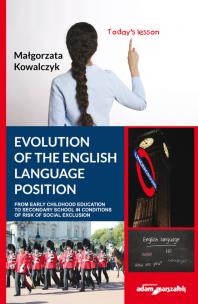- Regulamin
- Koszty dostawy
- Kontakt
- Dziś w ofercie 237 050 produktów
KSIĄŻKI
- Albumy
- Beletrystyka
- Biografie
- Dla dzieci i młodzieży
- Edukacja
- Ekonomia i biznes
- Ezoteryka
- Historia
- Informatyka
- Kalendarze
- Komiksy
- Kryminał i sensacja
- Kultura i sztuka
- Literatura faktu
- Literatura kobieca
- Literatura piękna
- Medycyna
- Nauka języków obcych
- Nauki humanistyczne
- Nauki przyrodnicze
- Nauki ścisłe
- Podręczniki
- Poradniki
- Prawo i administracja
- Przewodniki i podróże
- Psychologia
- Religia
- Sport
- Technika
- Zdrowie i uroda
ZABAWKI
- Artykuły dla niemowląt
- Bączki
- Bujaki i skoczki
- Ciągnij / pchaj
- Dla niemowlaka
- Grzechotki i gryzaki
- Karuzele i pozytywki
- Maty i centra zabaw
- Projektory i lampki
- Sortery i piramidki
- Zabawki
- Edukacyjne i kreatywne
- Figurki
- Klocki
- Lalki
- Pojazdy
- Pluszaki i maskotki
- Sport i rekreacja
- Zabawa w dom
- Zabawki drewniane
- Puzzle
- Do 200 elementów
- 201-500 elementów
- 501-1000 elementów
- Ponad 1000 elementów
- Puzzle 3D
ART. PAP
- Artykuły biurowe
- Artykuły piśmiennicze
- Bloczki i kartki samoprzylepne
- Dziurkacze
- Kalkulatory
- Nożyczki i nożyki
- Skoroszyty
- Teczki
- Wizytowniki
- Zszywacze
- Artykuły szkolne
- Akcesoria szkolne
- Modelowanie
- Notatniki i zeszyty
- Piórniki
- Plecaki i torby
- Pojemniki na śniadanie
- Pomoce naukowe
- Przybory matematyczne
- Przybory rysunkowe
- Upominki i gadżety
- Akcesoria do książek
- Artykuły balowe
- Breloki i zawieszki
- Drobiazgi, różności
- Kubki
- Oferta Świąteczna
- Papeteria, kartki i naklejki
- Skarpetki Many Mornings
- Upominki
GRY
MULTIMEDIA
- Audiobooki
- Beletrystyka
- Biografie i wspomnienia
- Dla dzieci i młodzieży
- Fantastyka
- Filozofia i religia
- Historia
- Literatura faktu i reportaż
- Poradniki
- Sensacja i kryminał
- Filmy DVD/BD
- Animowane
- Biograficzne
- Fantasy
- Horrory
- Komedie
- Romanse
- Science Fiction
- Sensacyjne / kino akcji
- Thrillery
- Muzyka CD
- Alternatywna
- Blues
- Dla dzieci
- Jazz
- Klasyczna
- Piosenka aktorska i poetycka
- Pop
- Rock
- Świąteczna i kolędy
- Akcesoria GSM
- Głośniki
- Kable i adaptery
- Klawiatury
- Myszy
- Słuchawki
PROMOCJE
ZDROWIE
LEGO

Evolution of the English Language Position
Autor: Kowalczyk Małgorzata
Wydawca:
Adam Marszałek
ISBN:
9788381807159
EAN:
9788381807159
oprawa:
oprawa: broszurowa
format:
208x138 mm
język:
angielski
liczba stron:
230
rok wydania:
2023
(0) Sprawdź recenzje
Opis produktu
Zasady bezpieczeństwa
The study is based on a case study of a socio-educational microregion located in Central Pomerania. This case is considered from the point of view of teaching English in local schools. In this perspective, the systemic solution should be the 2017 reform, the so-called reform by Minister Anna Zalewska – based on ideological assumptions called “Good School”. Research carried out in rural schools five years after the implementation of the idea of “Good School” creates premises for the modification of English didactics in the realities of provincial primary schools. In the years preceding the 2022/2023 school year, the dominance of the German language in modern foreign language teaching was clearly inhibited there. Moreover, by the school year 2021/2022, staffing barriers have disappeared. Both the preference for the English language and qualified English teachers are now the premises for the growing importance of this subject and its position in 8-grade primary school preceded by prior pre-school education. The author's research and analyzes show that the main barriers or obstacles in teaching English in a provincial primary school lie in the conditions of the school’s social environment. This is especially important in the realities of a rural school.
CENA:
28,46
zł
Cena detaliczna:
33,60 zł
15%
rabatu
Najniższa cena z ostatnich 30 dni: 28,49 zł
Produkt niedostępny
Uwaga!!!
Ten produkt jest zapowiedzią. Realizacja Twojego zamówienia ulegnie przez to wydłużeniu do czasu premiery tej pozycji. Czy chcesz dodać ten produkt do koszyka?


Wybierz wariant produktu
